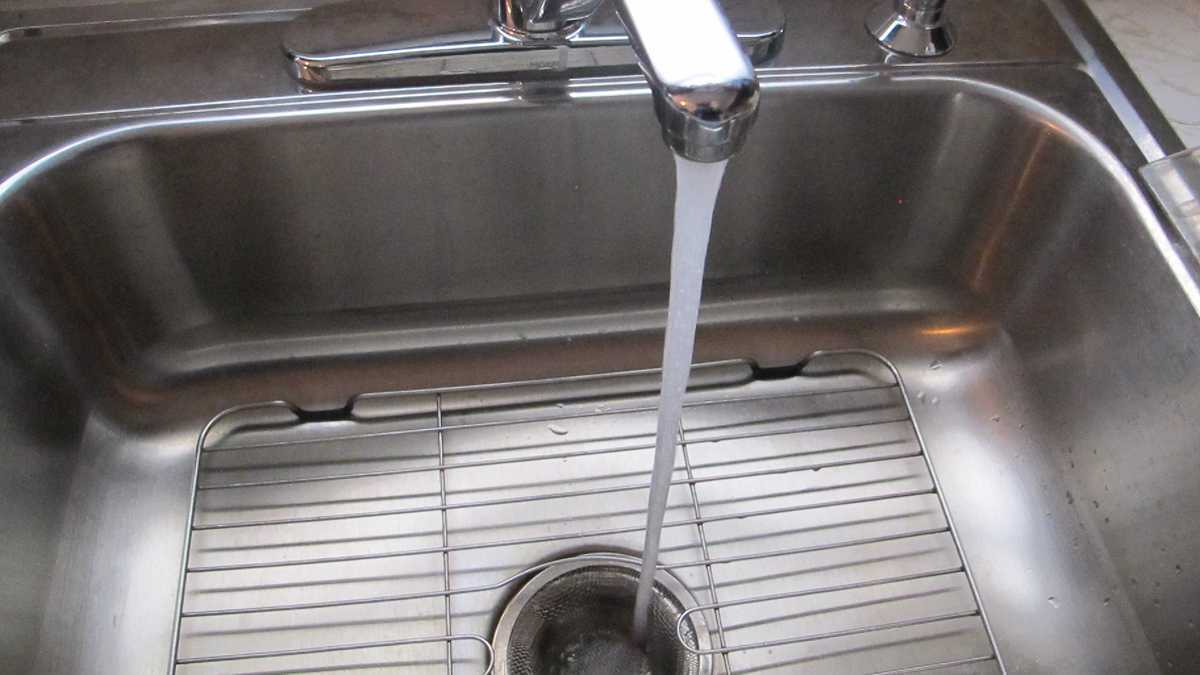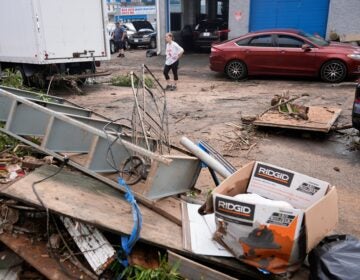Bill would force the Christie administration to adopt clean water recommendations

(NewsWorks file photo)
The state Department of Environmental Protection faces increased pressure to regulate a set of toxic chemicals after the introduction of a bill that would require it to follow the recommendations of a panel of state scientific advisors.
The bill, introduced by Sen. Raymond Lesniak, (D-Union) would give the DEP six months after the passage of the bill to accept the recommendations of the Drinking Water Quality Institute, which advises the department on maximum contaminant levels (MCLs) for hazardous chemicals in drinking water.
Lesniak said the bill does not set any specific time for the DEP to adopt DWQI recommendations in future because he hopes that the department will speed up its processes as a result of the bill. “This is a very extraordinary situation to require the department to do what they are supposed to be doing,” he said. “One would hope that this would only have to be done once.”
The bill, S2468, says the DEP has “failed” to adopt the DWQI’s proposed standards for 16 chemicals since 2005:
(1) Perchlorate, recommended in October 2005
(2) Radon-222, recommended in February 2009
(3) Benzene, recommended in March 2009
(4) Carbon tetrachloride, recommended in March 2009
(5) 1,3-dichlorobenzene, recommended in March 2009
(6) 1,4-dichlorobenzene, recommended in March 2009
(7) 1,2-dichloroethane, recommended in March 2009
(8) Formaldehyde, recommended in March 2009
(9) n-Hexane, recommended in March 2009
(10) Methyl ethyl ketone, recommended in March 2009;
(11) Vinyl chloride, recommended in March 2009
(12) DCPA and degradates, as recommended in March 2009
(13) 1,1-dichloroethane, recommended in March 2009
(14) 1,1,2-trichloroethane, recommended in March 2009
(15) 1,2,3-trichloropropane, recommended in March 2009
(16) perfluorononanoic acid, recommended in July 2015
“The recommendations of the institute should be swiftly considered and adopted by the department,” the bill says.
The DEP has been accused of dragging its feet over its failure so far to accept the PFNA recommendation, which was DWQI’s first since restarting work in 2014 after a hiatus of almost four years. The Christie administration stopped filling vacancies so the panel shut down for four years until NJ Spotlight questioned why. Critics believe Gov. Christie purposely tried to shut down the panel in an effort to prevent any additional regulation of the chemical industry.
PFNA, whose uses include nonstick cookware and flame-resistant fabrics, has been found in Paulsboro and eight other locations around the state.
The DWQI, a panel of academic scientists, water company executives and state officials, has been working on the PFC family of chemicals which have been linked to some cancers and elevated cholesterol in humans and developmental problems in animals, according to the New Jersey Department of Health. It is expected to make a new recommendation, on the chemical PFOA, in coming weeks.
Lesniak told NJ Spotlight that the DWQI “has been ignored by this administration” and that public health is at risk as a result. Lesniak said the DEP’s failure to accept the panel’s recommendation on PFNA was the “trigger” for the bill but that the DEP should also accept the panel’s work on the 15 other chemicals.
He predicted “huge” support in the legislature for the bill, and predicted it would be on Christie’s desk by the end of the year. Lesniak said he didn’t know whether Christie would sign it, but predicted that support for the bill could be enough to overturn any veto.
“I believe that he will run the risk of an override,” Lesniak said.
Before introducing the bill, Lesniak said he spoke with DWQI Chairman Dr. Keith Cooper, who had expressed his concern about being “ignored” by the DEP, Lesniak said.
Cooper, a Rutgers University toxicologist, frequently stresses his panel’s strictly scientific role and says he has no intention of becoming involved in policy decisions on the regulation of chemicals. But Lesniak challenged Cooper’s rejection of policy. “By making the recommendation, that is a policy decision whether he likes it or not,” Lesniak said. Cooper did not immediately respond to a request for comment by NJ Spotlight.
Tracy Carluccio, deputy director of the environmental group Delaware Riverkeeper Network, which has been an outspoken advocate for the regulation of PFCs, said Lesniak’s bill may prompt the state to act on the DWQI’s recommendations.
“When DWQI scientists make a recommendation for a maximum contaminant level, DEP is supposed to take the next step and adopt it but instead we get years of intolerable delay,” Carluccio said. “This new bill may finally get some action out of the state if the Legislature gets behind it.”
Larry Hajna, a spokesman for the DEP, said the department does not comment on pending legislation.
WHYY is your source for fact-based, in-depth journalism and information. As a nonprofit organization, we rely on financial support from readers like you. Please give today.




